

In order to investigate awareness of food waste, we conducted a survey for the entire grade and received responses from 187 students.

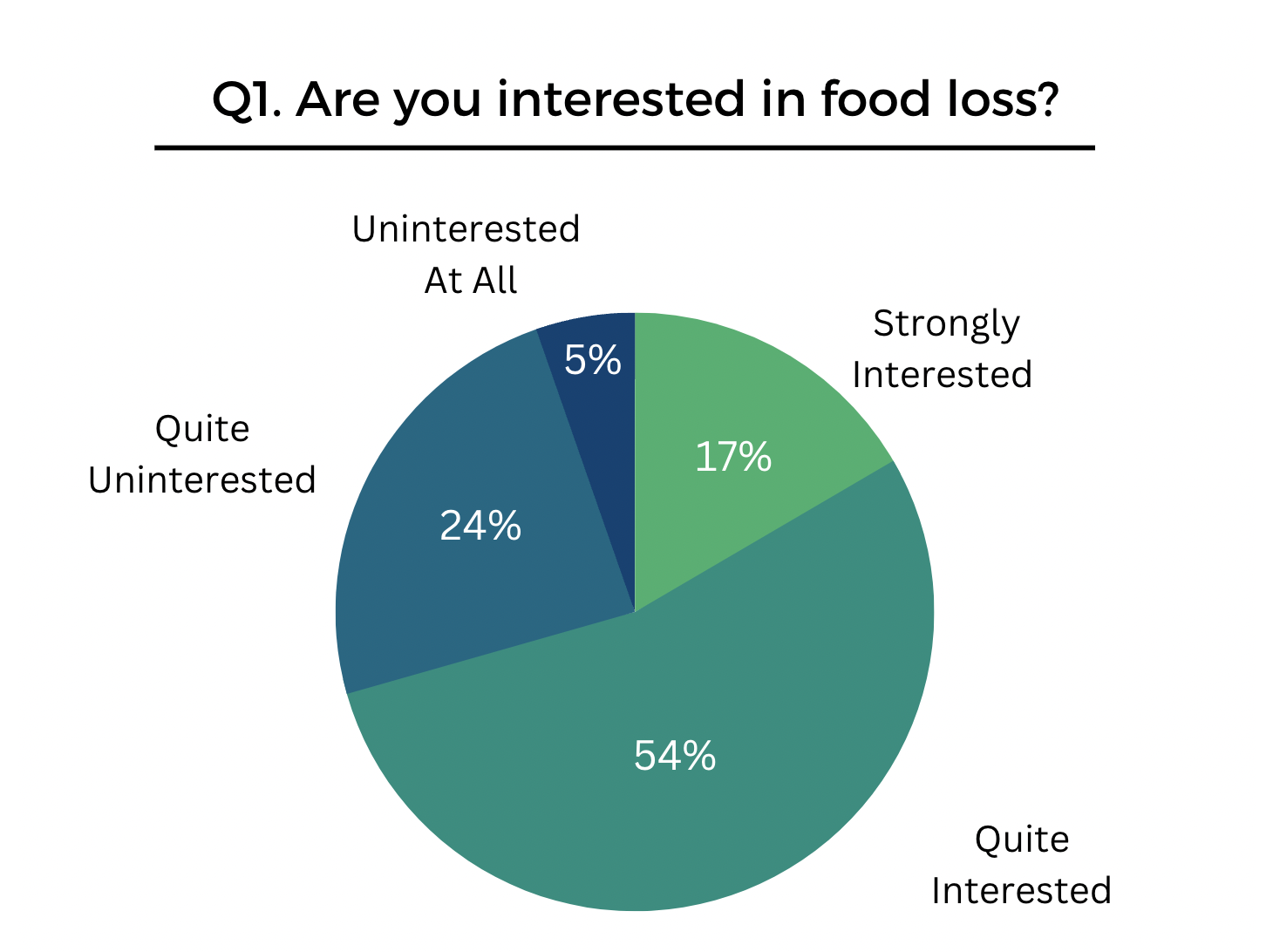
Many students were interested in food waste.

I see that
many students are interested in food waste.
Yep!
Having interests is very important!


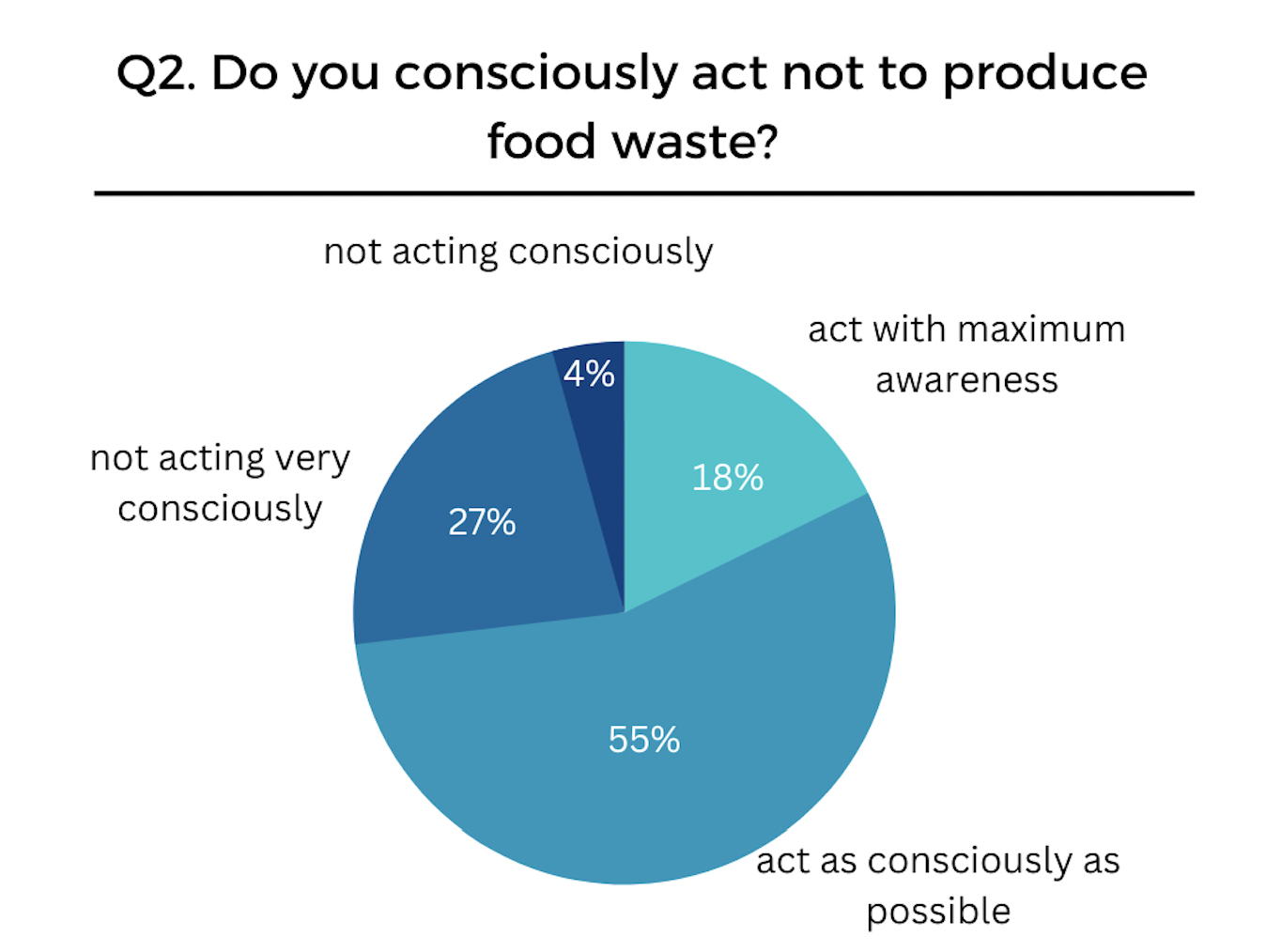
75% of the students were
consciously acting not to produce food waste.

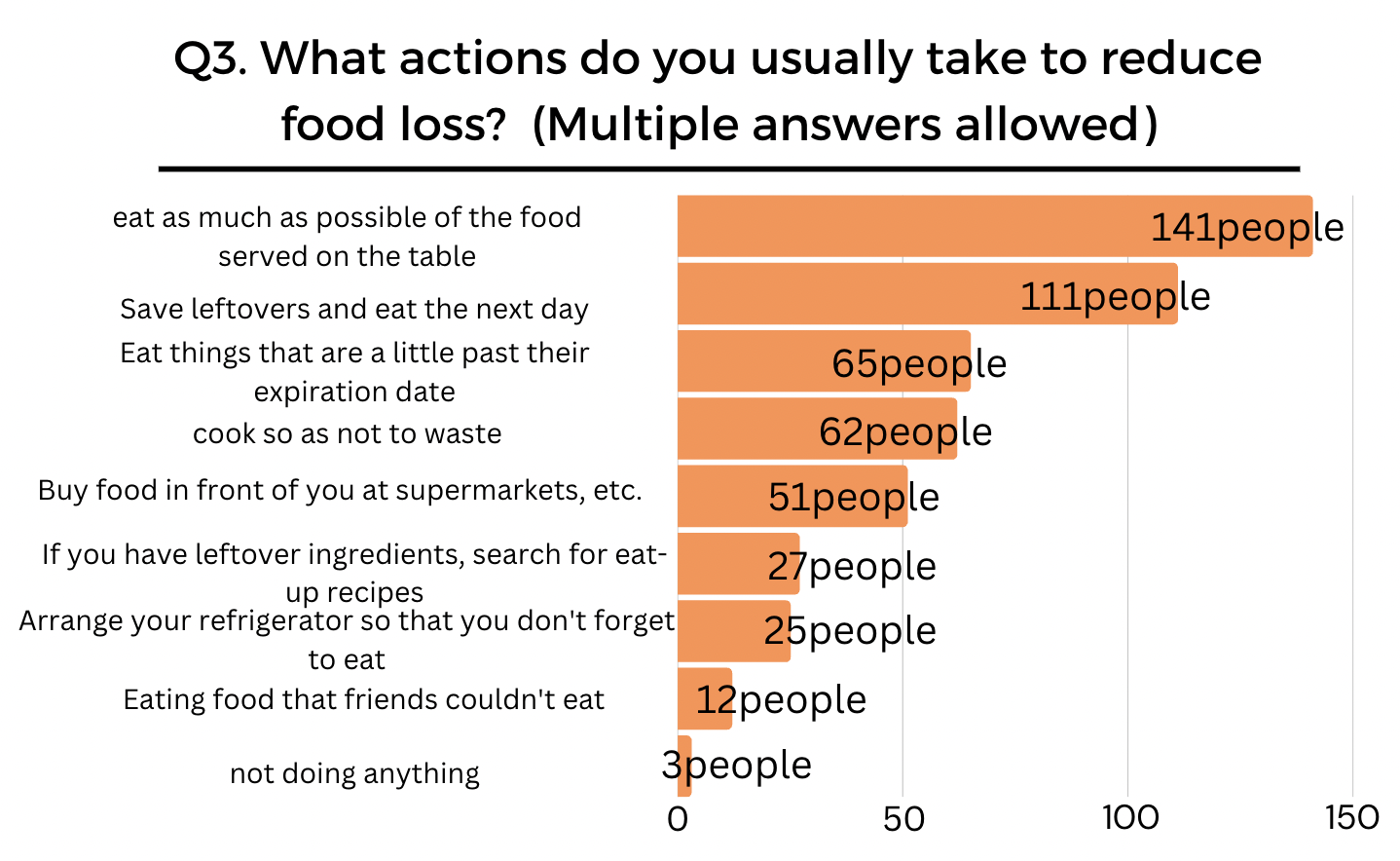
Many people were practicing
"Eat as much as possible of the food served on the table"
"Save leftover food and eat it the next day"
The accumulation of these small actions will lead to the reduction of 2.47 million tons of food loss at home every year!
By the way, recipes for using up leftover ingredients are on the website of the
Ministry of Agriculture, Forestry and Fisheries,
You can check it with the
Cookpad of the MAFF


I might try new recipes
Let's check the points of organizing the refriedgerator.
・Sort foods by item and frequency of use
・determine the position of the food
・Use baskets and containers to store items together
・Place the product so that the expiration date can be seen.
Keep this in mind to prevent overbuying and forgetting to use the food!


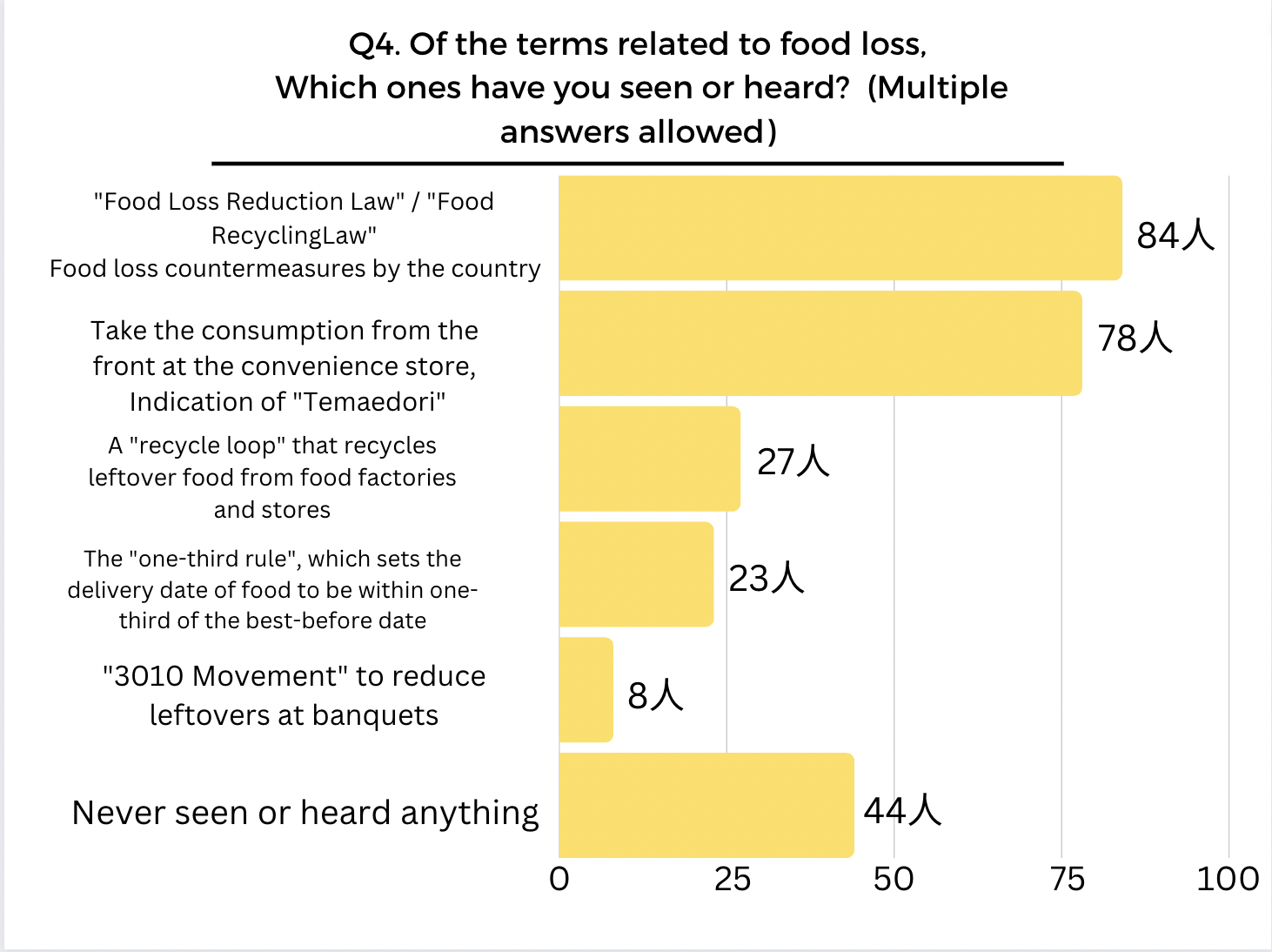
As a result, many people have seen and heard about the law promoting food loss reduction by the country and "Temaedori" often seen at supermarkets and convenience stores.
On the other hand, there was very little awareness of things that we do not see in our daily lives,
such as the "recycle loop" and the "one-third rule."
In addition, some people had never seen or heard of any of the options given.

Many people responded to the label of "temaedori," which they usually see,
but it was surprising that the recognition of food loss
countermeasures by countries that are not usually asked about was even higher.
When I asked people who answered that they had seen or heard of these laws,
they said that they learned about them in social studies classes at school.
I felt the importance of dealing with food waste in school education.


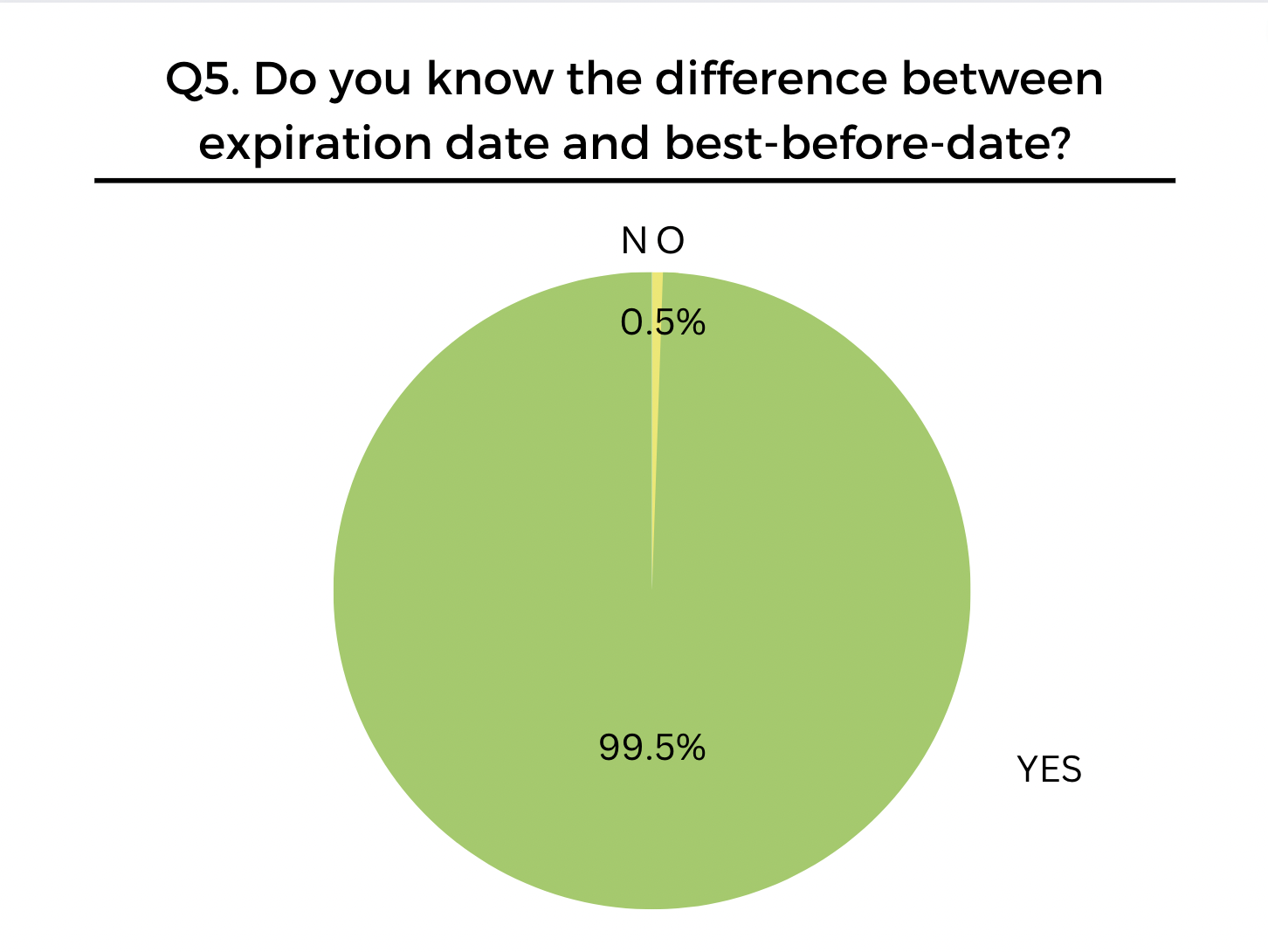
Only one person didn't know
the difference between best-before date and expire date.

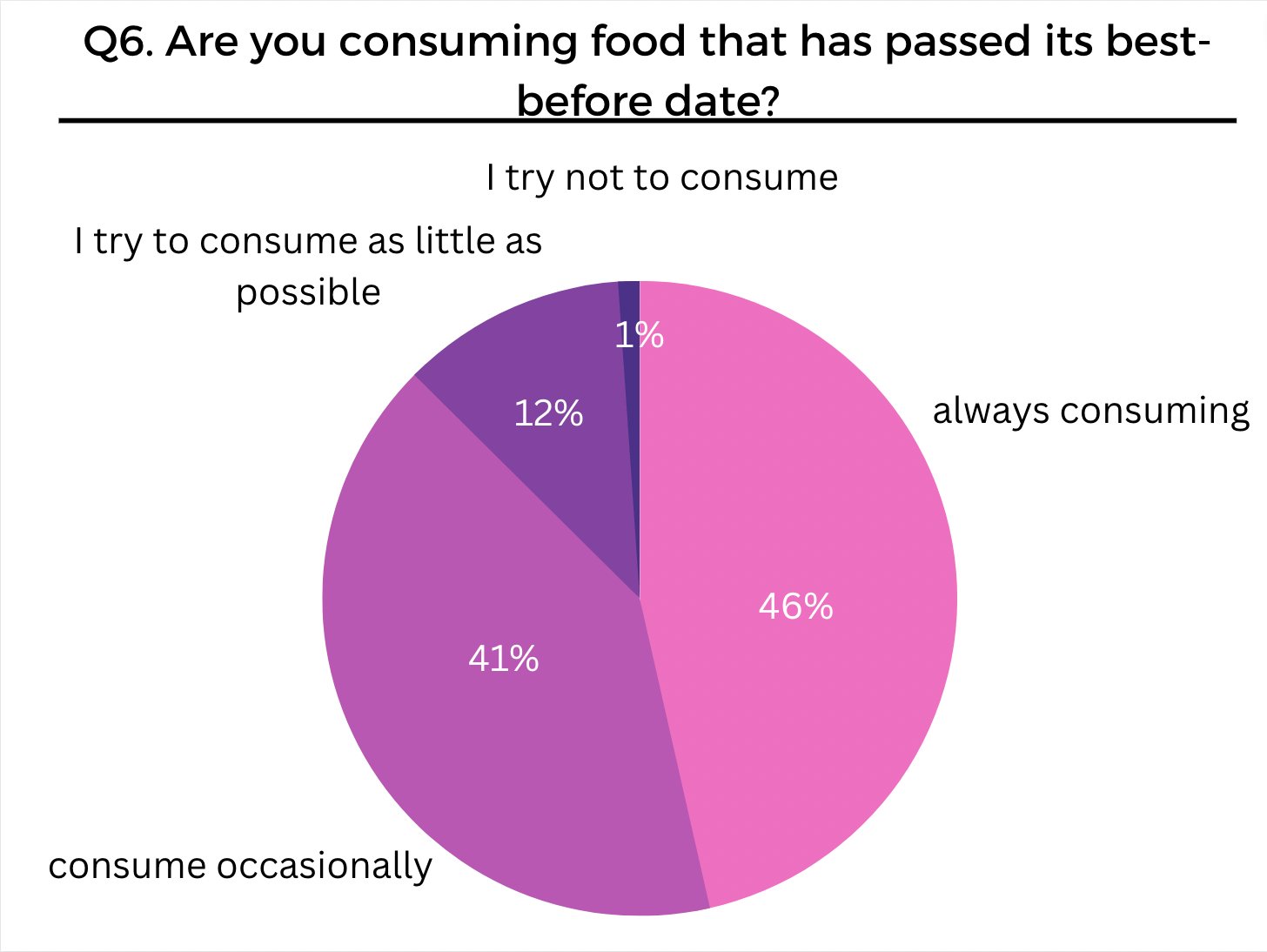
13% of the people were passive to
consuming food that has past the best-before date.

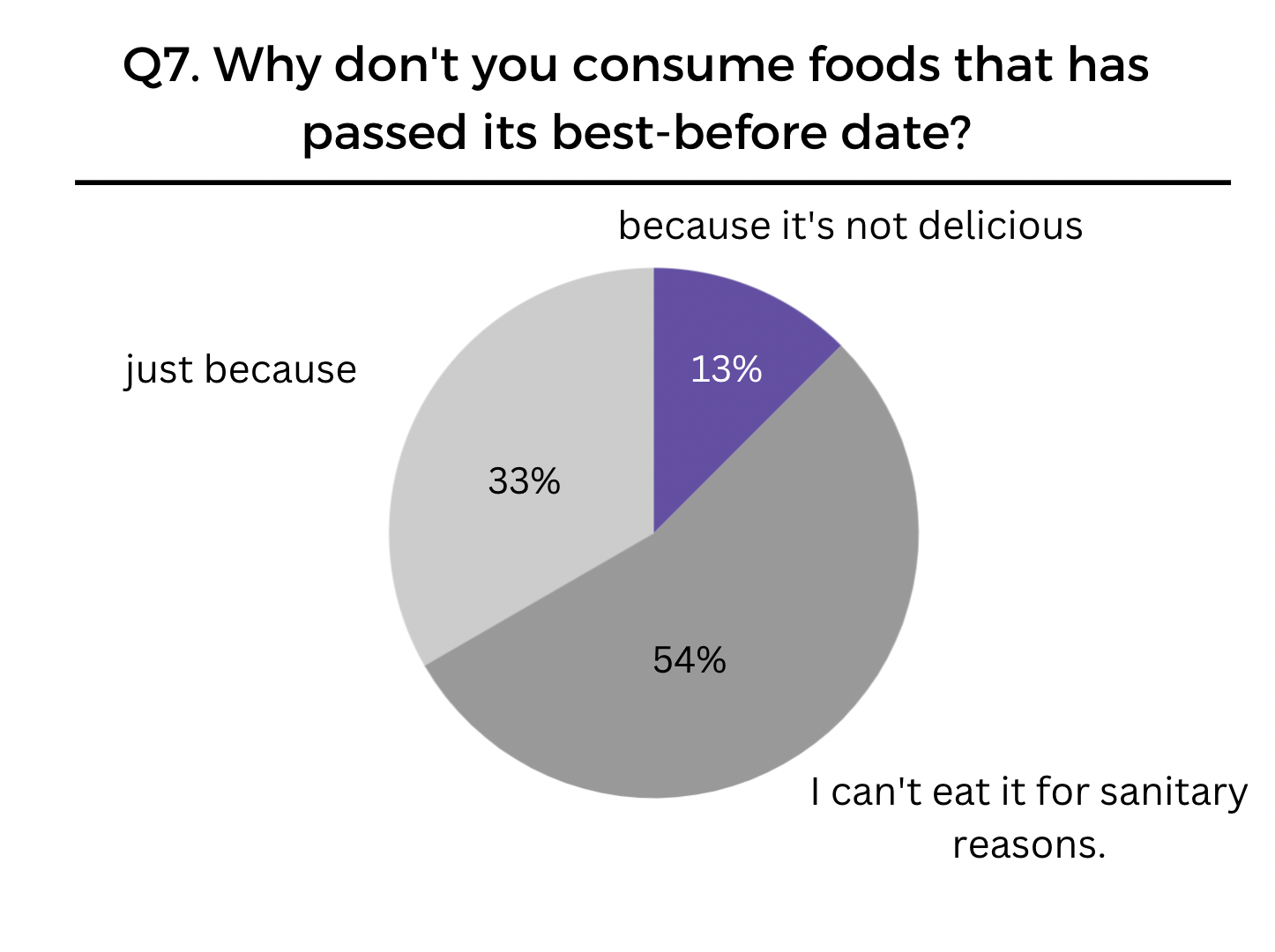
Only 13% of the people answered that they don't
consume food that has past the best-before date
because of its taste.

hmmm
hmm
Even if they know that the expiration date is the deadline for maintaining quality such as deliciousness,
some people don't eat expired food for "hygienic reasons".
Even if you know it's safe in your head,
you probably have a strong sense of resistance to eating "expired" food.
Even if the best-before date has passed, as long as it is unopened and the storage instructions on the package
are followed, it is still safe to eat.
It's important to understand this well and appreciate food even if it's past its expiration date.


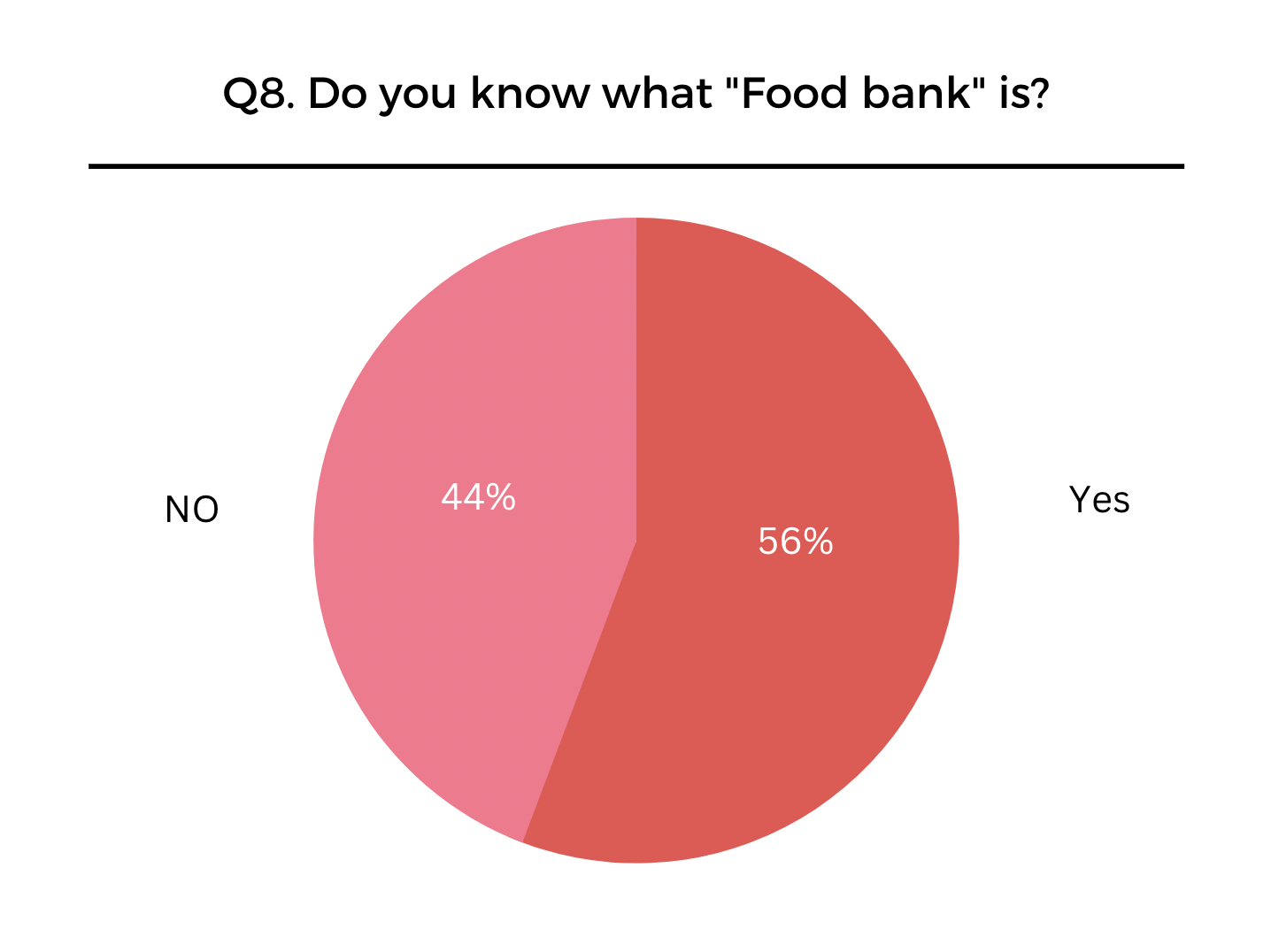
About half of the students knew what food banks are.
There are many other organizations that are working to reduce food loss like this.
If you are interested, please take a look at each group's website.
You may find something you can contribute to.


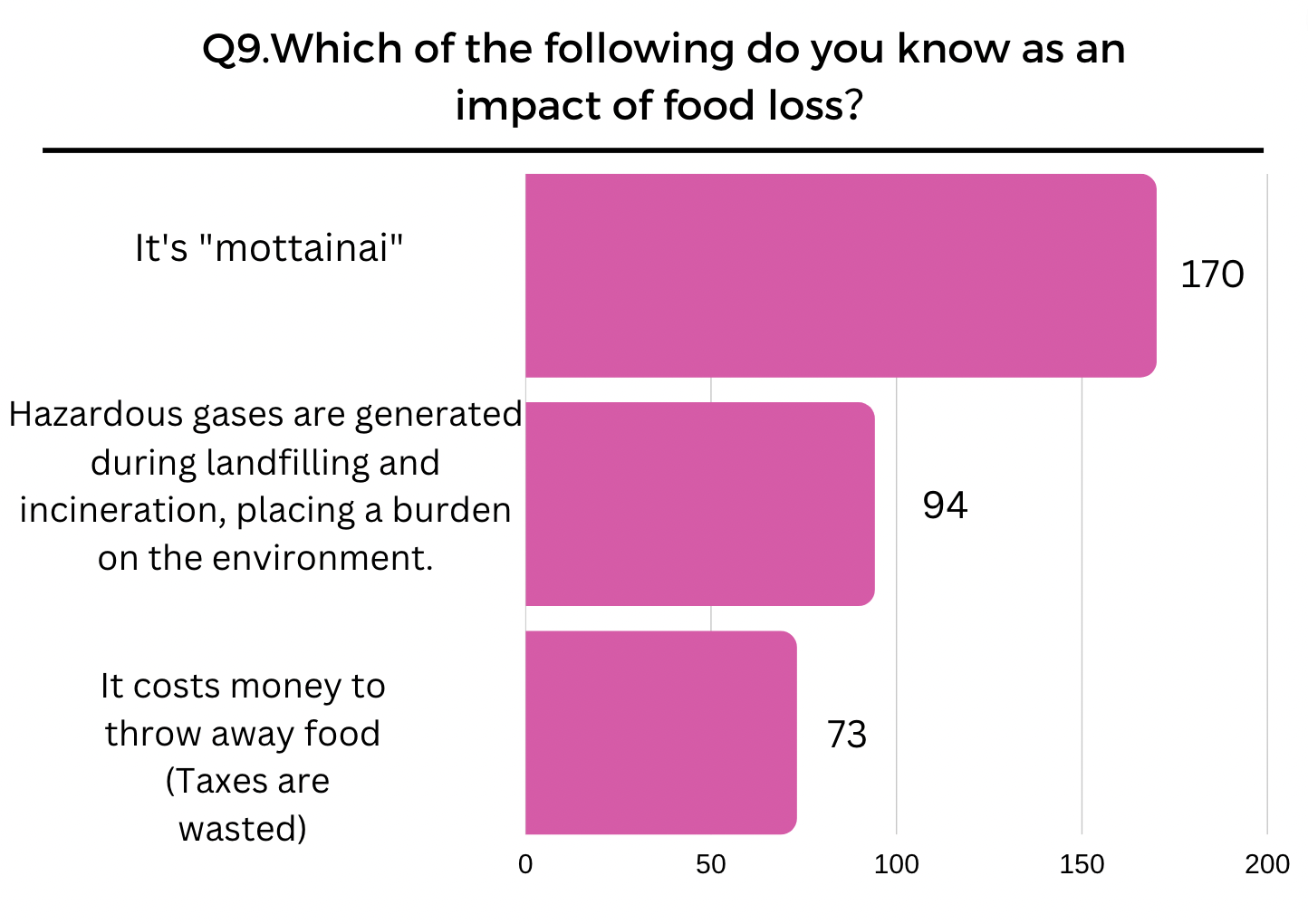
More than 90% of the people had an awareness
that food waste is "mottainai"

The awareness of "Mottainai" leads to changing the way you treat food.
That's right.
Also, knowing about the impact on the environment and taxes
can help us see food loss as a more serious problem.


Through the questionnaire, we found that many people are interested in
food loss and are taking actions that can be done in their immediate surroundings.
On the other hand, although there is an awareness of "mottainai",
only about half of the respondents knew in detail how
food loss affects us specifically and what a food bank is.
In addition, there are a certain number of people who
usually choose not to consume food that has passed its expiration date,
and among them, "resistence" against the expiration date was cited as the reason.
Through this activity to learn about food loss,
we have deepened our knowledge about food loss
and started to think about the significance of the actions we take to reduce food loss
that we usually do without thinking about it.
Therefore, in the same way, we felt that we wanted to share our knowledge of food loss with the people who responded to the survey this time (including those who didn't know much about it) and raise their awareness. We thought that in the future they would be more proactive in reducing losses.
For this purpose, we decided to hold a lecture about food waste.